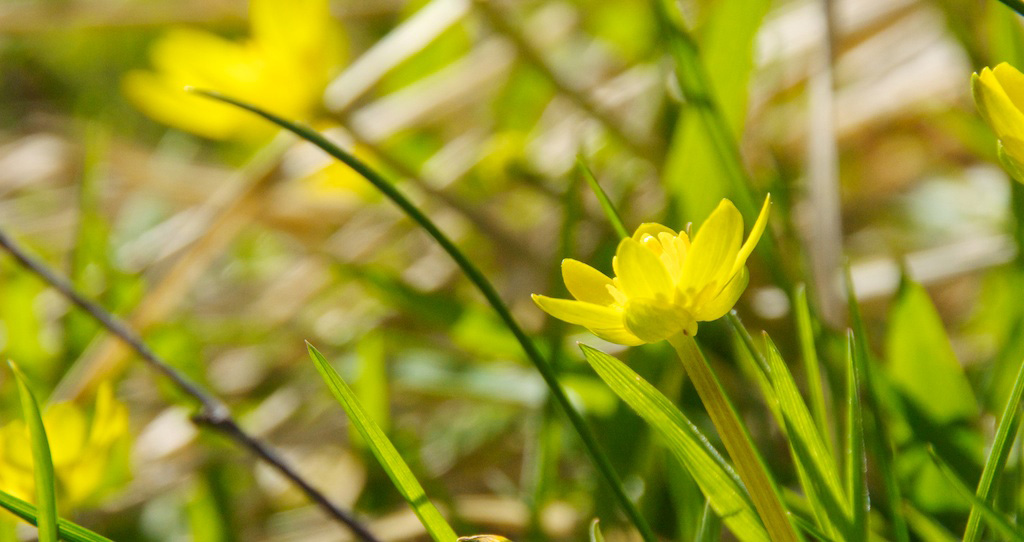
Lesser celandine: greeting the sun
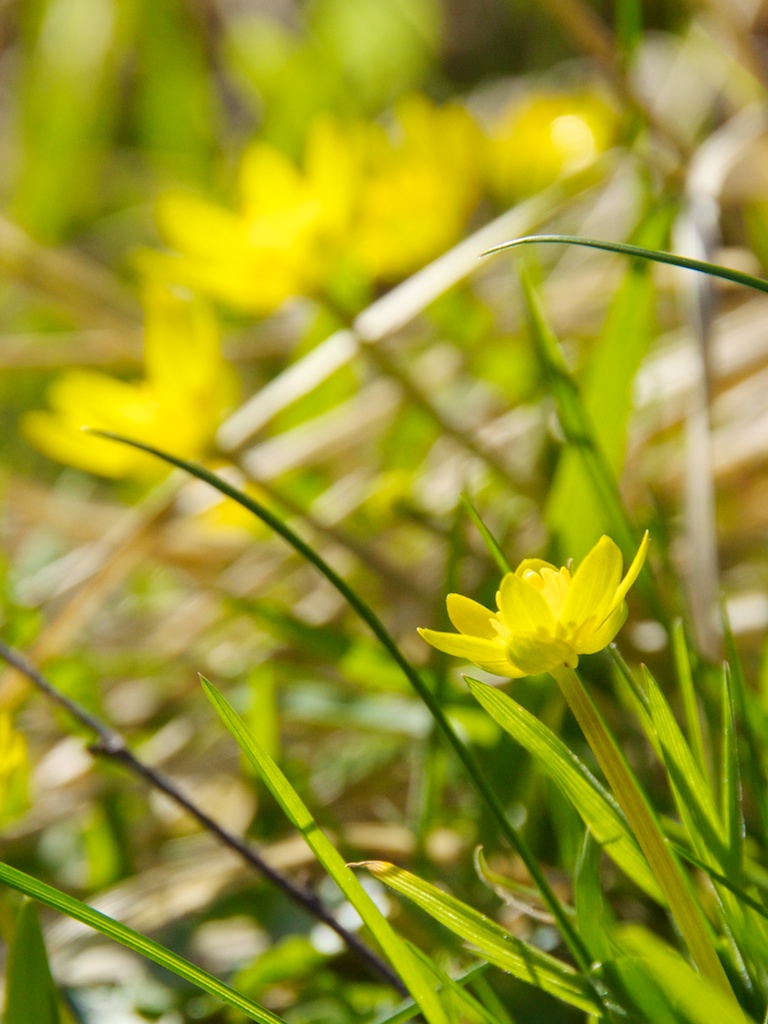 Over the last few days, the warm sunshine has opened out the first flowers of lesser celandine.
Over the last few days, the warm sunshine has opened out the first flowers of lesser celandine.
These welcome blooms are among the first to show themselves in spring, studding fields and damp verges with brilliant yellow stars.
The lesser celandine (Ranunculus ficaria) is a member of the buttercup family; there is also a greater celandine, but this is not closely related.
The number of petals can vary between eight and 12, and they sit on quite long stems above a close bed of dark green heart-shaped leaves.
Celandines respond to the daylight, opening out at dawn and closing up at dusk; like true sun-worshippers, they will also close up before rain. The old Celtic name for them is ‘grian’, meaning ‘sun’.

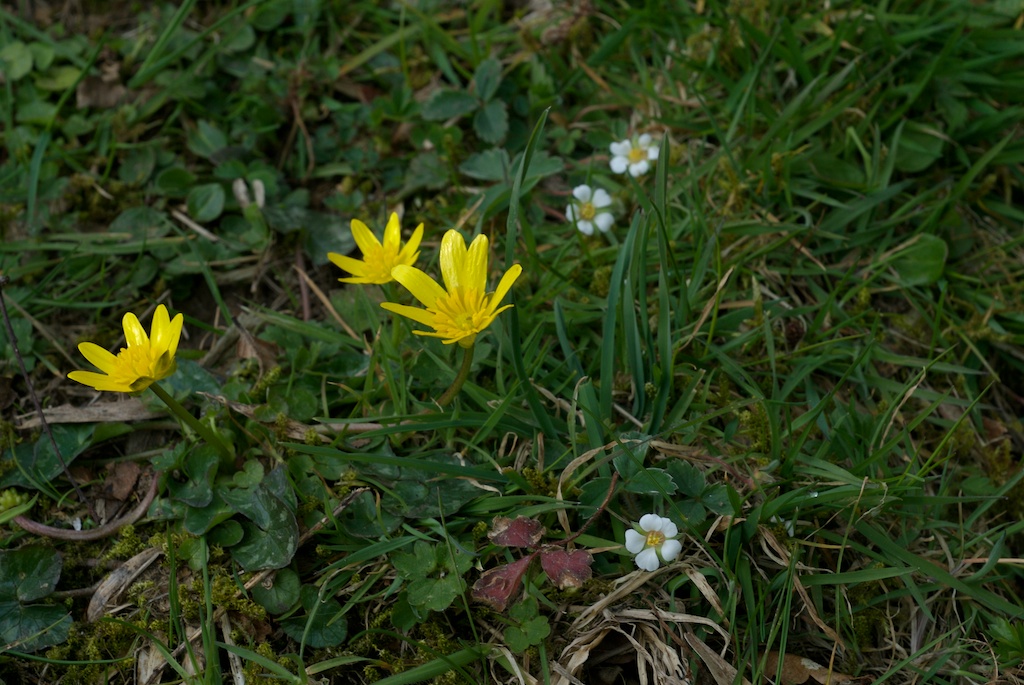 Celandines with wild strawberry
Celandines with wild strawberry
Although Wordsworth’s most famous poem was about daffodils, it was the lesser celandine that was his favourite flower:
“There is a Flower, the Lesser Celandine,
That shrinks, like many more, from cold and rain;
And, at the first moment that the sun may shine,
Bright as the sun itself, ‘tis out again!”
‘The Small Celandine’
Traditionally, lesser celandine has been used to treat many ailments, from varicose veins to haemorrhoids, ulcers and warts; in the Western Isles, the plants were sometimes hung in cow byres to bring good yields of milk.
According to Plantlife, in the language of flowers celandine represents ‘joy to come’. The heads are so pure and delicate, yet they are among the bravest, coming before the woodland beauties of windflowers and bluebells, when the air is still sharp with frost and the squalls can turn easily from rain to snow. After a long winter of wind and rain, they gladden the heart.
- Plantlife
- Wildlife Trusts
- The White Goddess
- Western Isles Wildflowers
- The Herb Society – Herbs in History
Photos © Colin & Jo Woolf
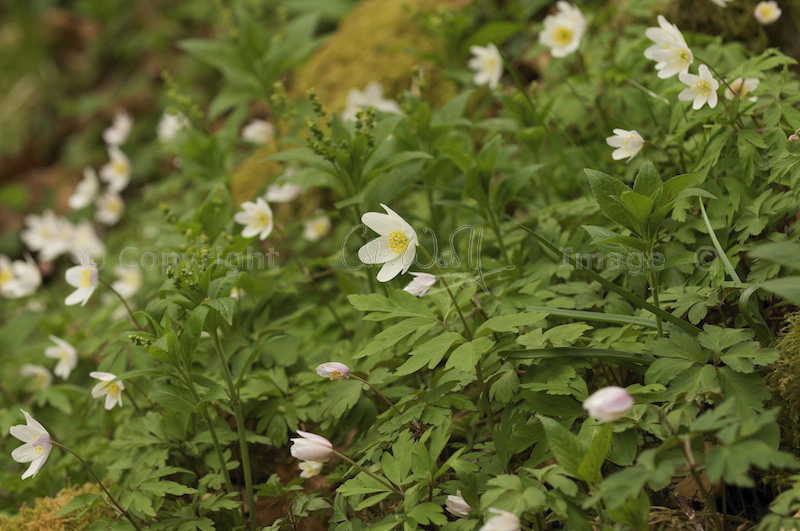
More spring beauties
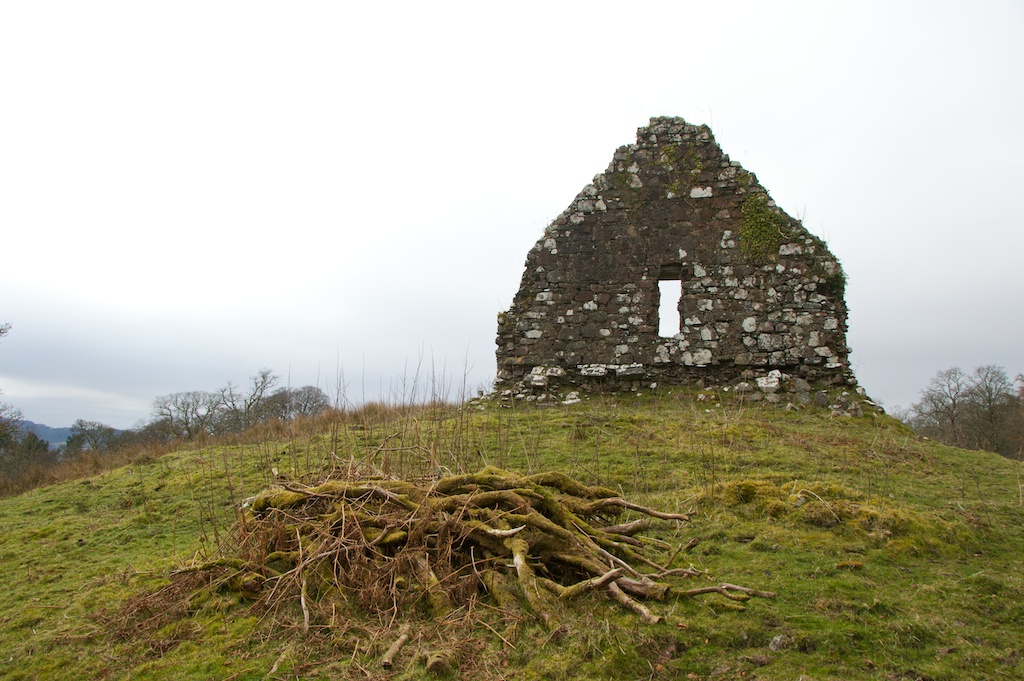
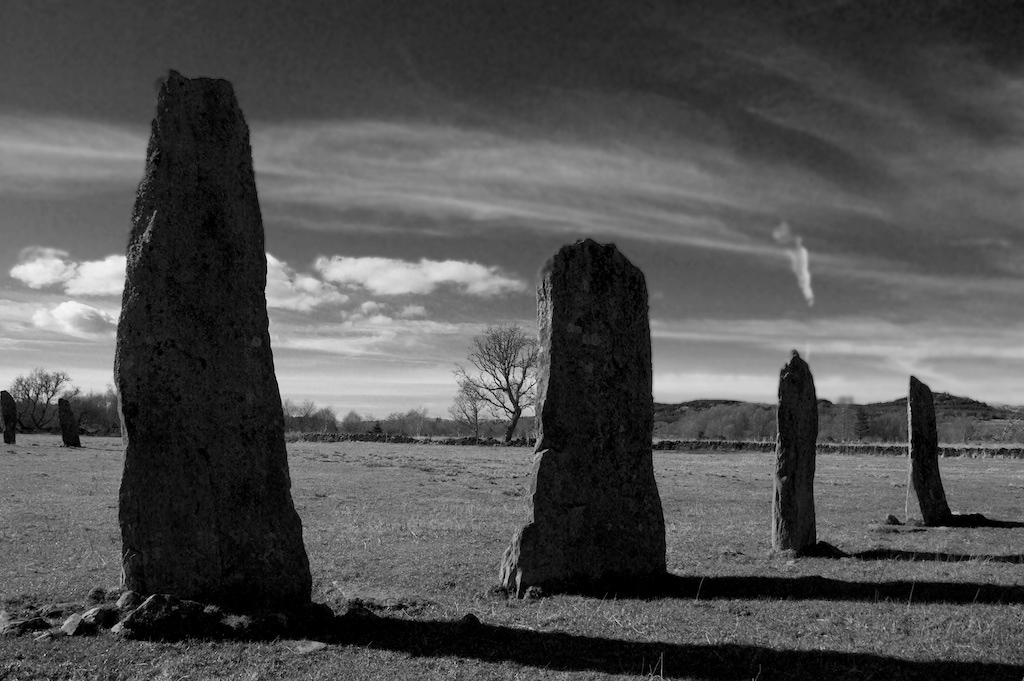
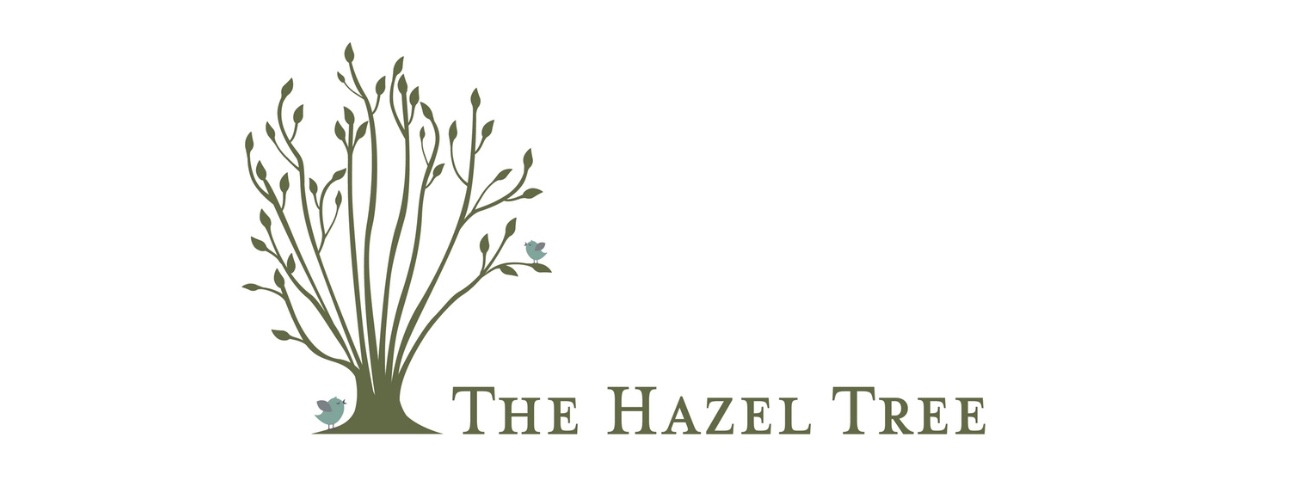
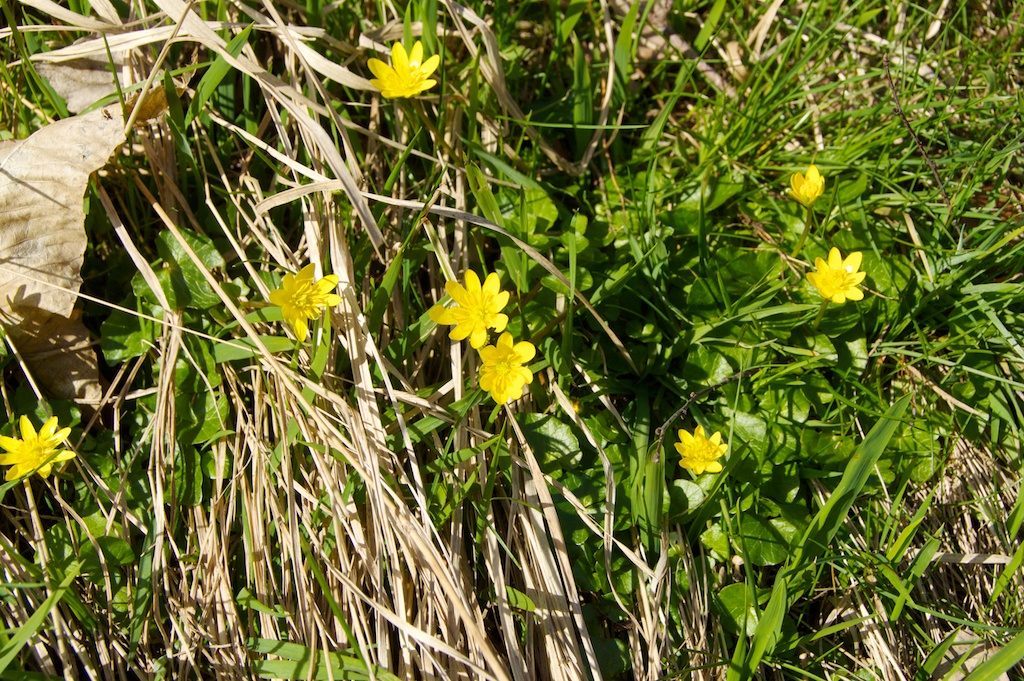
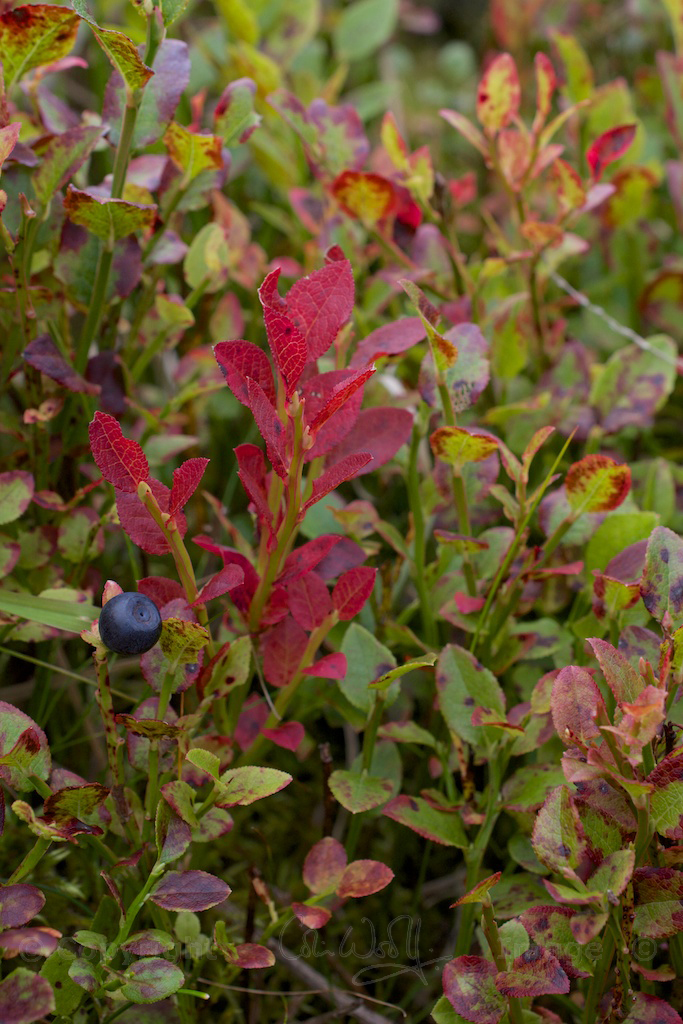
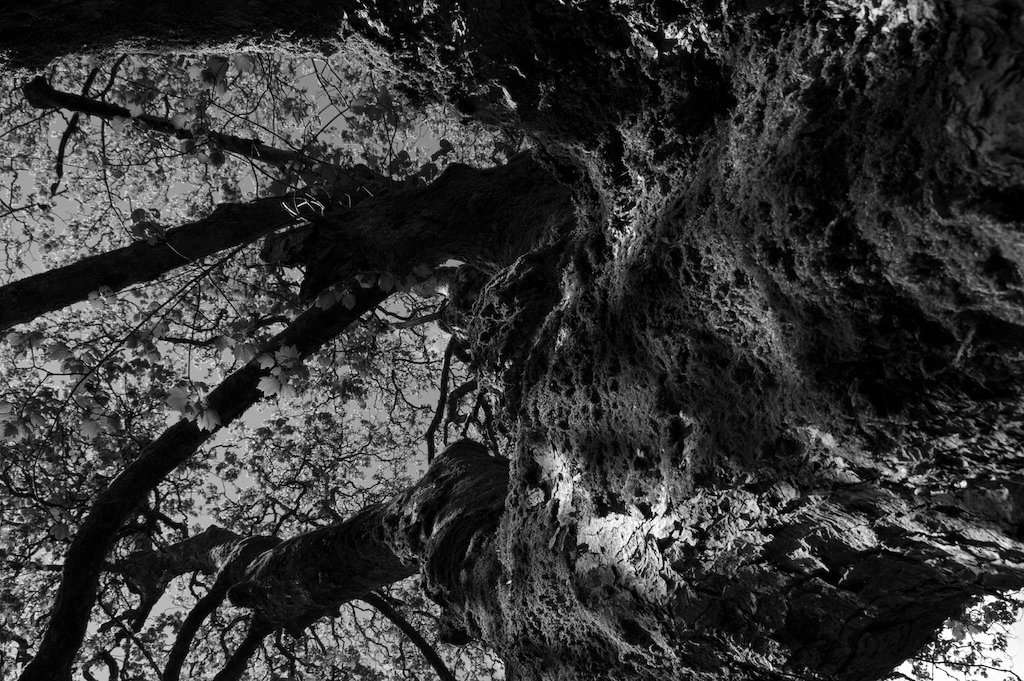
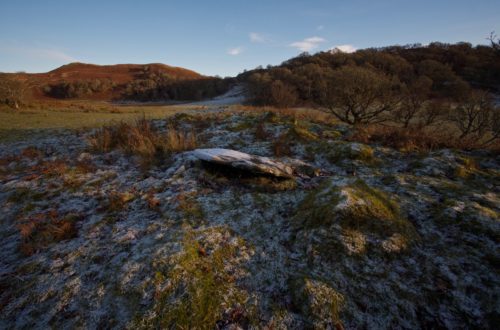
9 Comments
http://vivinfrance.wordpress.com
They may represent joy to come, but to me they are present joy! We are about 6 weeks ahead of you with our celandines – I found the first at the end of Jauary Now they are everywhere in the pathside banks, and the pasture fields are full of daisies.
Jo Woolf
That’s so good! You are well ahead and thank goodness, after such a winter. I’m looking forward to more spring days like the ones we’ve had this last week.
Pat
We have our own little “suns” showing their faces just now. Such a joy to see! 🙂
Jo Woolf
Good to hear! Our sun has been obscured by sea fog for the last day or so – hoping it returns soon!
Lorna
Beautiful pictures, Jo. They are a delight to see and I like the idea of them representing joy to come. Like daffodils, they’re such a wonderfully cheering bright yellow. Perhaps that was Wordsworth’s favourite colour.
Jo Woolf
That’s a nice thought, Lorna! I’ll be looking for more of these in the coming weeks. Some more sunshine would be so welcome!
Judi
This is a noxious weed that will take over entire areas and overwhelm native plants. You won’t be able to get rid of it without glyphosate!!! Don’t encourage this plant!
Jo Woolf
Sounds like you have had some unwelcome encounters with celandine, Judi! This is what the RHS has to say, but you may well have seen it already. https://www.rhs.org.uk/advice/profile?pid=187
paul
i agree with Judi its said toxic to animals live stock has no enemies s Asian varieties becomes impossible to control found taking over my organic garden .. spent 4 consecutive years eradicating it march April each year approving not allowing to flower using small garden grub axe lifting up torch entire the the plant root tubers in a pan and the hole it comes out with of propane soldering torch down to twelve this year hope that it .. i can feel now relief